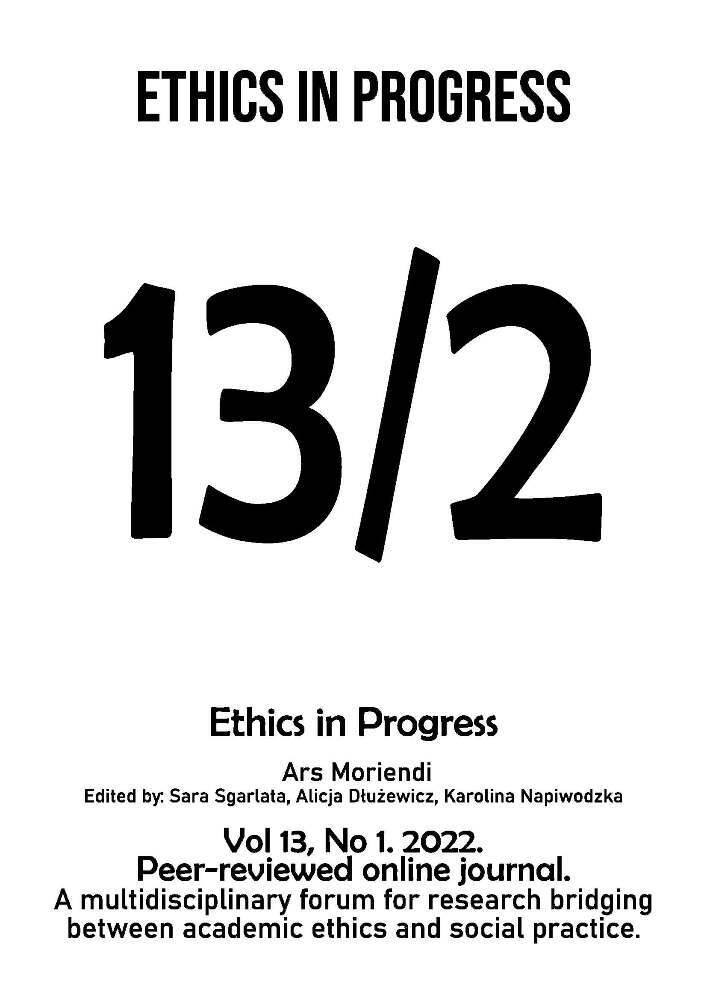Abstract
This paper outlines the proposal for an egalitarian, transhumanist, and communal version of ars moriendi that should be coherent and meet the consequentialist criteria of the principle of minimizing anti-values and maximizing values, especially the ethical values of freedom and happiness. Transhuman-ist augmented dying (AD) refers to the extended body-mind, free from harmful religious and political ideologies. At present, a feasible art of dying can be systematically supported by anesthetics and psy-chedelics (entheogens), computer games, virtual reality, and good death machines. Its egalitarian form requires a deeply democratic society, and its progress may need a transition to a type 1 society on the Kardashev scale.
References
Clark A. 2001. Mindware: An Introduction to the Philosophy of Cognitive Science. Oxford: Oxford University Press.
Clark A. 2003. Natural-Born Cyborgs. Oxford: Oxford University Press.
Clark A. & Chalmers D. 1998. “The Extended Mind,” Analysis 58(1):7–19. Fernandes C., Vale M. & Lourenço M. 2022. “Exploring the Use of Games in Palliative Care: A Scoping Review,” Palliative and Supportive Care Jan 20:1–21. https://doi.org/10.1017/S1478951521001929. DOI: https://doi.org/10.1017/S1478951521001929
Gillis W. 2012. What is Anarcho-Transhumanism. https://theanarchistlibrary.org/library/william-gillis-what-is-anarcho-transhumanism.
Grob C. S., Danforth A. L., Chopra G. S., Hagerty M., McKay C. R., Halberstadt A. L. & Greer G. R. 2011. “Pilot Study of Psilocybin Treatment For Anxiety In Patients With Advanced-stage Cancer,” Archives of general psychiatry 68(1):71–78. https://doi.org/10.1001/archgenpsychiatry.2010.116 DOI: https://doi.org/10.1001/archgenpsychiatry.2010.116
Heidegger M. 2001. Being and Time. Oxford: Blackwell Publishers Ltd.Hursthouse R. & Pettigrove G. “Virtue Ethics,” The Stanford Encyclopaedia of Philosophy (Winter 2018 Edition), E. N. Zalta (Ed.), URL: https://plato.stanford.edu/archives/win2018/entries/ethics-virtue/.
Joshi E. 2019. “This 3D Printed Death Pod Lets the User Die in a High Tech and Luxe Way,” Luxury Launches. Retrieved on 28 May, 2022, URL: https://luxurylaunches.com/other_stuff/this-3d-printed-death-pod-lets-the-user-die-in-a-high-tech-andluxe-way.php.
Jung C. G. 1972. The Collected Works of C. G. Jung, Vol. 7: Two Essays on Analytical Psychology, trans. G. Adler & R. F. C. Hull. Princeton: Princeton University Press.
Lloyd A. & Haraldsdottir E. 2021. “Virtual Reality in Hospice: Improved Patient Well-Being,” BMJ Supportive & Palliative Care 11:344–350. https://doi.org/10.1136/bmjspcare-2021-003173 DOI: https://doi.org/10.1136/bmjspcare-2021-003173
Meier E. A., Gallegos J. V., Thomas L. P., Depp C. A., Irwin S. A., & Jeste D. V. 2016. “Defining a Good Death (Successful Dying): Literature Review and a Call for Research and Public Dialogue,” American Association for Geriatric Psychiatry 24(4):261–271. https://doi.org/10.1016/j.jagp.2016.01.135. DOI: https://doi.org/10.1016/j.jagp.2016.01.135
Nietzsche F. 2006. Thus Spoke Zarathustra. A Book for All and None. Cambridge: Cambridge University Press.
Pickett K., Wilkinson R. 2011. The Spirit Level: Why Greater Equality Makes Societies Stronger. Bloomsbury Publishing.
Polowczyk P. Ł. 2017. “Organizational Ethical Integrity: Good and Bad Illusions,” Palgrave Communication 3:46. https://doi.org/10.1057/s41599-017-0044-x DOI: https://doi.org/10.1057/s41599-017-0044-x
Polowczyk P. Ł. 2019. Rzeczywista natura polskiej transformacji ustrojowej a kwestia maksymalizacji wolności [The real nature of the Polish systemic transformation and the issue of maximizing freedom]. In R. Michalski (Ed.), Trzydziestolecie restytucji kapitalizmu w Polsce [30th anniversary of capitalism restitution in Poland] (pp. 203–224). Warszawa: Akademia Finansów i Biznesu Vistula.
Rate C. R., Clarke J. A., Sternberg L., & Robert J. 2007. “Implicit Theories of Courage,” The Journal of Positive Psychology 2(2):80–98. https://doi.org/10.1080/17439760701228755 DOI: https://doi.org/10.1080/17439760701228755
Rodríguez A. J. M. & Winkelman M. J. 2021. “Psychedelics, Sociality, and Human Evolution,” Frontiers in Psychology 12:729425. https://doi.org/10.3389/fpsyg.2021.729425. DOI: https://doi.org/10.3389/fpsyg.2021.729425
Roser M., Ritchie H., & Mathieu E. 2013. “Technological Change,” published online at OurWorldInData.org, retrieved on 30 June, 2022 from https://ourworldindata.org/technological-change.
Schenberg E. E. 2018. “Psychedelic-Assisted Psychotherapy: A Paradigm Shift in Psychiatric Research and Development,” Frontiers in Pharmacology 9:733. https://doi.org/10.3389/fphar.2018.00733. DOI: https://doi.org/10.3389/fphar.2018.00733
Thomas Aquinas. 1968. Summa Theologiae IIa-IIae, q. 64, a. 5, trans. M. Rudick. Alba: Edizioni domenicane.
Timmermann C., Roseman L., Williams L. et al. 2018. “DMT Models the Near-Death Experience,” Frontier in Psychology 9:1424. https://doi.org/10.3389/fpsyg.2018.01424. DOI: https://doi.org/10.3389/fpsyg.2018.01424
Whitecar P. S., Jonas P. & Clasen M. E. 2000. “Managing Pain in the Dying Patient,” American Family Physician 61(3):755–764.
Wittgenstein L. 2021. Tractatus Logico-Philosophicus. eBook Edition, Project Gutenberg. https://doi.org/10.2307/j.ctv22d4t7n DOI: https://doi.org/10.2307/j.ctv22d4t7n
License

This work is licensed under a Creative Commons Attribution-ShareAlike 4.0 International License.





